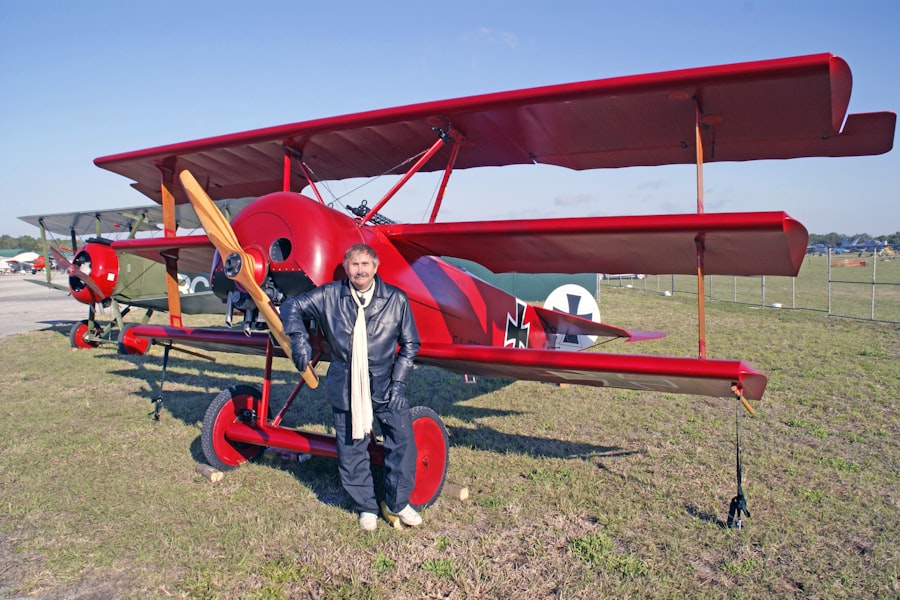GKN Aerospace and Fokker Technologies represent two significant players in the aerospace sector, each with a rich history and a commitment to innovation. GKN Aerospace, a division of GKN plc, is a global leader in aerospace components and systems, providing advanced technologies for both civil and military aviation. With a presence in over 14 countries, GKN Aerospace specializes in aerostructures, engine systems, and other critical components that are essential for modern aircraft.
The company has built a reputation for excellence through its focus on research and development, as well as its ability to adapt to the ever-evolving demands of the aerospace market. Fokker Technologies, on the other hand, has its roots in the Netherlands and has been a prominent name in aerospace engineering since its inception in the early 20th century. Originally founded as an aircraft manufacturer, Fokker has transitioned over the years to focus on high-tech aerospace systems and components.
The company is known for its expertise in lightweight structures, electrical systems, and advanced manufacturing techniques. The partnership between GKN and Fokker has created a formidable alliance that leverages the strengths of both organizations, enabling them to deliver cutting-edge solutions to their customers while addressing the challenges of the aerospace industry.
Key Takeaways
- GKN and Fokker have a long-standing partnership that has significantly influenced the aerospace industry.
- Their collaboration has led to numerous innovative projects and technological advancements.
- The partnership has faced challenges but has continually adapted to overcome obstacles.
- Future plans include expansion and further development to enhance aerospace solutions.
- Customers and stakeholders benefit from improved products and strengthened industry presence.
History of the Partnership
The partnership between GKN Aerospace and Fokker Technologies can be traced back to GKN’s acquisition of Fokker in 2016. This strategic move was aimed at enhancing GKN’s capabilities in the aerospace sector by integrating Fokker’s specialized knowledge and technological expertise. The acquisition was not merely a financial transaction; it represented a vision for creating a more comprehensive portfolio of aerospace solutions that could meet the diverse needs of customers worldwide.
By bringing Fokker into the fold, GKN aimed to strengthen its position in the market and expand its reach into new territories. Since the acquisition, the collaboration between GKN and Fokker has evolved significantly. The two companies have worked closely together on various projects, sharing resources and expertise to drive innovation.
This partnership has allowed them to combine GKN’s extensive experience in aerostructures with Fokker’s proficiency in lightweight materials and systems integration. The synergy created by this collaboration has not only enhanced their product offerings but has also positioned them as leaders in addressing the challenges faced by the aerospace industry, such as sustainability and efficiency.
Impact of the Partnership on the Aerospace Industry

The partnership between GKN Aerospace and Fokker Technologies has had a profound impact on the aerospace industry, particularly in terms of technological advancements and operational efficiencies. By pooling their resources and expertise, the two companies have been able to develop innovative solutions that address critical industry challenges. For instance, their collaborative efforts have led to advancements in lightweight materials that contribute to fuel efficiency and reduced emissions in aircraft design.
This is particularly relevant in an era where environmental concerns are at the forefront of aviation discussions. Moreover, the partnership has facilitated the development of integrated systems that enhance aircraft performance and safety. By combining GKN’s capabilities in aerostructures with Fokker’s expertise in electrical systems, they have been able to create more sophisticated aircraft systems that improve overall functionality.
This integration not only benefits manufacturers but also enhances the flying experience for passengers by providing more reliable and efficient aircraft. As a result, GKN and Fokker have positioned themselves as key players in driving innovation within the aerospace sector.
Collaborative Projects and Innovations
| Project Name | Collaborating Organizations | Start Date | End Date | Innovation Type | Key Metrics | Status |
|---|---|---|---|---|---|---|
| Green Energy Initiative | EcoTech, SolarWorks, GreenFuture | 2023-01-15 | 2024-12-31 | Renewable Energy | Energy Output: 5 MW, CO2 Reduction: 2000 tons/year | Ongoing |
| AI Healthcare Diagnostics | MedAI, HealthPlus, BioSense | 2022-06-01 | 2023-11-30 | Artificial Intelligence | Accuracy: 92%, Patient Reach: 10,000+ | Completed |
| Smart City Mobility | UrbanMove, CityTech, Transit Solutions | 2023-03-10 | 2025-03-09 | IoT & Transportation | Traffic Reduction: 15%, User Adoption: 50,000 | Ongoing |
| Water Purification System | PureWater, AquaSafe, EnviroLabs | 2021-09-20 | 2023-08-31 | Environmental Tech | Purification Rate: 99.5%, Communities Served: 30 | Completed |
| Blockchain Supply Chain | ChainLink, SupplyNet, TrustLog | 2023-05-01 | 2024-10-31 | Blockchain | Transaction Speed: 200 TPS, Transparency Score: 85% | Ongoing |
GKN Aerospace and Fokker Technologies have embarked on numerous collaborative projects that showcase their commitment to innovation and excellence in aerospace engineering. One notable project is their work on advanced composite materials for aircraft structures. By leveraging Fokker’s expertise in lightweight materials and GKN’s manufacturing capabilities, they have developed composite components that significantly reduce weight while maintaining structural integrity.
This innovation is crucial for modern aircraft design, as it directly contributes to improved fuel efficiency and lower operational costs. Another area of collaboration has been in the development of electrical systems for next-generation aircraft. As the aviation industry moves towards more electric propulsion systems, GKN and Fokker have been at the forefront of creating integrated electrical solutions that enhance aircraft performance.
Their joint efforts have resulted in advanced power distribution systems that optimize energy usage and improve overall system reliability. These innovations not only meet current industry demands but also pave the way for future advancements in sustainable aviation technologies.
Challenges and Obstacles Faced
Despite the successes achieved through their partnership, GKN Aerospace and Fokker Technologies have encountered several challenges along the way. One significant obstacle has been navigating the complexities of integrating two distinct corporate cultures. Each organization has its own set of values, practices, and operational methodologies, which can create friction during collaboration.
To overcome this challenge, both companies have invested time and resources into fostering a unified corporate culture that emphasizes collaboration, innovation, and shared goals. Additionally, the aerospace industry is characterized by rapid technological advancements and shifting market demands. Keeping pace with these changes requires continuous investment in research and development, which can strain resources.
GKN and Fokker have had to prioritize their projects carefully to ensure they remain competitive while also addressing customer needs. This balancing act is crucial for maintaining their position as leaders in the aerospace sector while navigating an increasingly complex landscape.
Future Plans and Expansion

Looking ahead, GKN Aerospace and Fokker Technologies have ambitious plans for future growth and expansion within the aerospace industry. One key area of focus is sustainability, as both companies recognize the urgent need to address environmental concerns associated with aviation. They are actively exploring new technologies that can reduce carbon emissions and improve fuel efficiency across their product lines.
This commitment to sustainability aligns with global trends toward greener aviation solutions and positions them favorably in a market that increasingly values environmental responsibility. In addition to sustainability initiatives, GKN and Fokker are also looking to expand their global footprint by entering new markets and forming strategic partnerships with other industry players. By leveraging their combined strengths, they aim to tap into emerging markets where demand for advanced aerospace solutions is growing rapidly.
This expansion strategy not only enhances their market presence but also allows them to diversify their offerings and mitigate risks associated with market fluctuations.
Benefits for Customers and Stakeholders
The partnership between GKN Aerospace and Fokker Technologies brings numerous benefits to customers and stakeholders alike. For customers, the collaboration results in access to a broader range of innovative products and services that meet their specific needs. The combined expertise of both companies enables them to deliver high-quality solutions that enhance aircraft performance while reducing operational costs.
This is particularly valuable for airlines seeking to optimize their fleets amid rising fuel prices and increasing regulatory pressures related to emissions. Stakeholders also benefit from this partnership through enhanced operational efficiencies and improved financial performance. By streamlining processes and leveraging shared resources, GKN and Fokker can reduce production costs while maintaining high standards of quality.
This efficiency translates into better returns for investors and stakeholders who are increasingly focused on sustainable growth strategies. Furthermore, as both companies continue to innovate and expand their offerings, they are well-positioned to capture new business opportunities that arise within the dynamic aerospace market.
The Future of GKN and Fokker
As GKN Aerospace and Fokker Technologies continue to navigate the complexities of the aerospace industry, their partnership stands as a testament to the power of collaboration in driving innovation. With a shared commitment to excellence, sustainability, and customer satisfaction, they are poised to shape the future of aviation through advanced technologies and integrated solutions. The challenges they face will undoubtedly test their resilience; however, their combined strengths provide a solid foundation for overcoming obstacles.
Looking forward, GKN and Fokker’s focus on sustainability will play a pivotal role in defining their trajectory within the aerospace sector. As they invest in research and development aimed at reducing environmental impact while enhancing performance, they will not only meet regulatory demands but also align with consumer preferences for greener travel options. The future holds immense potential for this partnership as they continue to push boundaries, innovate relentlessly, and redefine what is possible in aerospace engineering.




